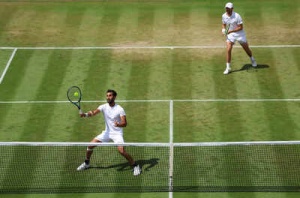The Asia Cup saga may be heading towards a resolution. While it's too early for definitive conclusions, a growing sense of optimism surrounds the tournament, a welcome change from the previous uncertainty fueled by tensions between India and Pakistan.

Although nothing is set in stone, a formal decision could emerge next week. The Asian Cricket Council (ACC) is aiming to release the schedule for the six-team tournament in early July, coinciding with a planned meeting.
The ACC is reportedly targeting a September start, potentially around September 10, for the T20 format tournament, assuming everything proceeds smoothly. The participating teams are expected to be:
Promotional activities for the tournament are already underway.
The UAE remains the leading candidate to host the Asia Cup, although a hybrid format is also under consideration. Due to the political climate, the ACC previously decided that when India or Pakistan are scheduled to host, the tournament will be held at a neutral venue.
The tournament's future was initially clouded by events such as the Pahalgam terror attack in April and India's Operation Sindoor against Pakistan in May. Calls for India to boycott Pakistan in multilateral events also intensified. Currently, India does not participate in bilateral cricket with Pakistan. Discussions regarding a potential Indian boycott of Pakistan in global events were anticipated at the upcoming ICC meeting.
However, recent developments suggest a possible shift. The ICC recently announced schedules for the Women's ODI World Cup in India and Sri Lanka, and the Women's T20 World Cup in England. In both tournaments, India and Pakistan are scheduled to play each other, on October 5 in Colombo and June 14 at Edgbaston, respectively.
While officials from the BCCI, ACC, and ICC have refrained from public comment, it seems likely that cricketing ties between the two rivals will continue, at least in global events. These matches are significant revenue generators for global cricket. While India and the BCCI may not heavily rely on revenue from these high-profile matches, governing bodies like the ICC and ACC, along with their member boards, do.
Newer articles
Older articles
 Earth's Spin Accelerating: Scientists Predict Potential 'Negative Leap Second' by 2029
Earth's Spin Accelerating: Scientists Predict Potential 'Negative Leap Second' by 2029
 5 Subtle Signs of Cervical Cancer Women Often Miss
5 Subtle Signs of Cervical Cancer Women Often Miss
 Hair Oil vs. Hair Serum: Choosing the Right Treatment for Your Hair Type
Hair Oil vs. Hair Serum: Choosing the Right Treatment for Your Hair Type
 Steven Smith Targets Test Return After Unique Baseball Cage Recovery in New York
Steven Smith Targets Test Return After Unique Baseball Cage Recovery in New York
 Bollywood's Enduring Fascination with Indian Mythology: From Ramayana to Modern Blockbusters
Bollywood's Enduring Fascination with Indian Mythology: From Ramayana to Modern Blockbusters
 Liver Disease: 5 Subtle Warning Signs You Shouldn't Ignore
Liver Disease: 5 Subtle Warning Signs You Shouldn't Ignore
 Heart Attack Warning: Key Signs That Can Appear Weeks in Advance
Heart Attack Warning: Key Signs That Can Appear Weeks in Advance
 New Zealand Announces Packed Home Cricket Schedule Featuring Australia, England, West Indies, and South Africa
New Zealand Announces Packed Home Cricket Schedule Featuring Australia, England, West Indies, and South Africa
 Wimbledon Upset: Bhambri & Galloway's Doubles Run Halted in Tiebreak Thriller
Wimbledon Upset: Bhambri & Galloway's Doubles Run Halted in Tiebreak Thriller
 Daren Sammy Fined, Receives Demerit Point for Third Umpire Criticism After Test Match
Daren Sammy Fined, Receives Demerit Point for Third Umpire Criticism After Test Match